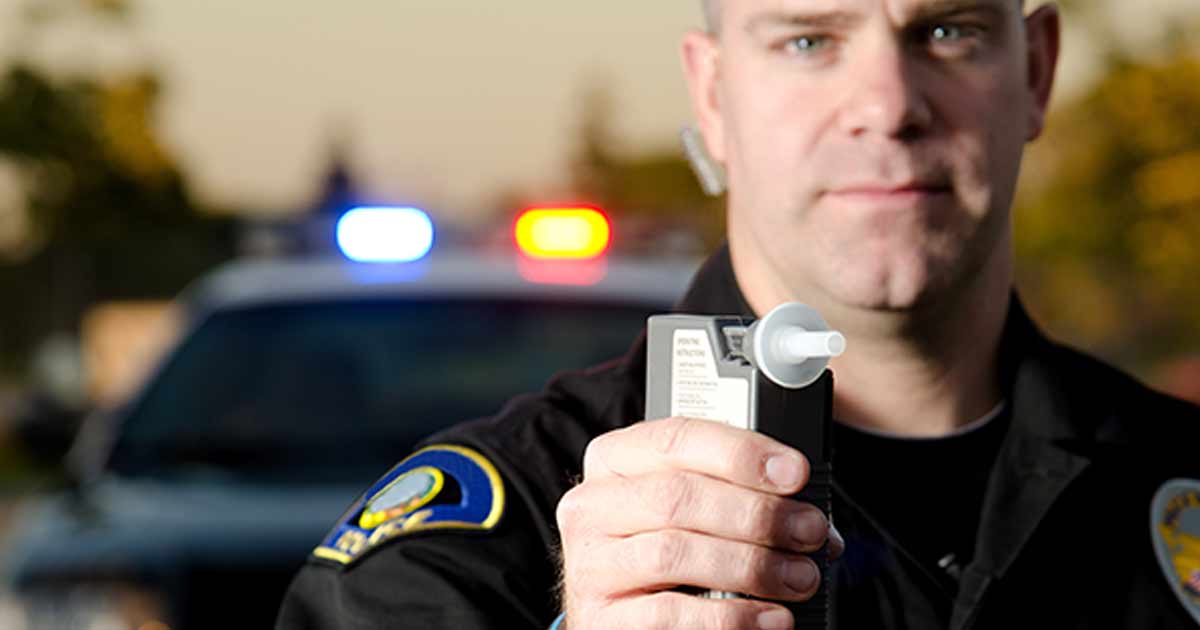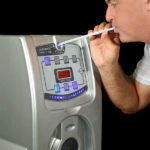Refusal of a PBT is a Civil Infraction
There is a common misconception that refusing a Preliminary Breath Test (PBT) (frequently called a “breathalyzer”) is a criminal offense and will result in the loss of a driver’s license.

Refusal of a PBT is a Civil Infraction, Not a Crime
Another common misconception is that a Preliminary Breath Test (PBT) is the same as a Breathalyzer. There are some significant differences. Generally, the result of the PBT is not admissible as evidence in a case (there is a very limited exception). A Breathalyzer or Intoxilyzer 9000 test is the breath test administered at the police station after an arrest, never on the side of the road (the one on the side of the road is a preliminary breath test or PBT. The result of the Breathalyzer (the one at the police stations) is admissible in court. A PBT is a small hand-held device used by Michigan police officers to help determine whether there is probable cause to arrest a driver for drunk driving. Although the PBT will give a reading that purports to show the level of the breath/alcohol, the device’s results are unreliable. Refusing a PBT after being pulled over or stopped for alleged drunken driving is not a crime. You can not lose your driver’s license if you refuse a PBT. Refusal of a PBT is a civil infraction with NO POINTS and a nominal fine.
The police usually ask a driver to take a PBT after having them conduct various field sobriety tests. Some officers request a PBT before sobriety tests, and no order of tests is mandated by law. Some police officers may tell you that you must take a PBT. That’s not true, and you can refuse to take it, especially if you believe that you performed the police officer’s field sobriety tests well and to the best of your abilities. You also do not have to perform field sobriety tests; you can refuse them. No ticket or violation can be given for refusal to perform field sobriety tests.
Important Definitions You Need to Know About PBTs and Breath Tests
- “Evidential breath alcohol analysis” means chemical analysis of an essentially alveolar breath sample that indicates a specific result in grams of alcohol per 210 liters of breath.
- “Evidential breath alcohol test instrument” means an evidential breath testing device that indicates a specific result in grams of alcohol per 210 liters of breath.
- “Preliminary breath alcohol analysis” means chemical analysis of essentially alveolar breath samples that indicates the presence or absence of alcohol in a person’s blood.
- “Preliminary breath alcohol test instrument” means a breath alcohol screening device that indicates the presence or absence of alcohol in a person’s blood.

A PBT Civil Infraction differs from an Evidentiary Breath Test Refusal After a DUI Arrest.
A breath/blood/urine test AFTER a person is arrested for DUI differs from a PBT refusal. Under Michigan’s Implied Consent laws, if someone refuses a chemical test (breath test at the police station, blood or urine test), driving privileges will be lost for one year. If an officer filed a report with the Michigan Secretary of State that a driver refused a chemical test, the driver must appeal within 14 days of the arrest/refusal.
If you fail to appeal to the Driver’s License Appeal Division or lose the appeal, the only option left for a Michigan driver is to appeal to circuit court. The appeal to circuit court is called a “Hardship Petition.”
The DUI specialists with LEWIS & DICKSTEIN, P.L.L.C. represent clients accused of drunk driving charges throughout Michigan. Our lawyers regularly appear in Oakland County, Macomb County, Washtenaw County, Wayne County, and Livingston County.
Refusing a PBT Test and OWI 3rd Felony Charges
If you are charged with DUI Third Offense, that is a felony with a maximum possible prison sentence of 5 years in the Michigan Department of Corrections. “Third Offense DUI” is commonly referred to as OWI 3rd or drunk driving third offense. There is a minimum sentence of one year in prison unless the judge orders probation with at least 30 days in jail. The penalty for refusing a preliminary breath test (PBT) is a civil infraction regardless of whether the OWI charge is for a felony or misdemeanor.
The Defense Team with LEWIS & DICKSTEIN, P.L.L.C. can help you with OWI felony and misdemeanor charges and provide the most vigorous possible defense. Our attorneys will meet with you without charge and help you determine your best defense.

THE Experienced and Aggressive DUI Attorneys in Michigan
The goal of an OWI attorney is to help their client achieve the best possible outcome in their case, whether that means obtaining a reduction or dismissal of charges, negotiating a plea agreement, or fighting for acquittal at trial. If you need assistance with a Michigan DUI charge and want a free consultation with an experienced OWI-DUI lawyer, do not hesitate to contact LEWIS & DICKSTEIN, P.L.L.C. Even if it seems like there is no hope, we will find a way to help you!
Call us today at (248) 263-6800 for a free consultation or complete an online Request for Assistance Form. We will contact you promptly and find a way to help you.












